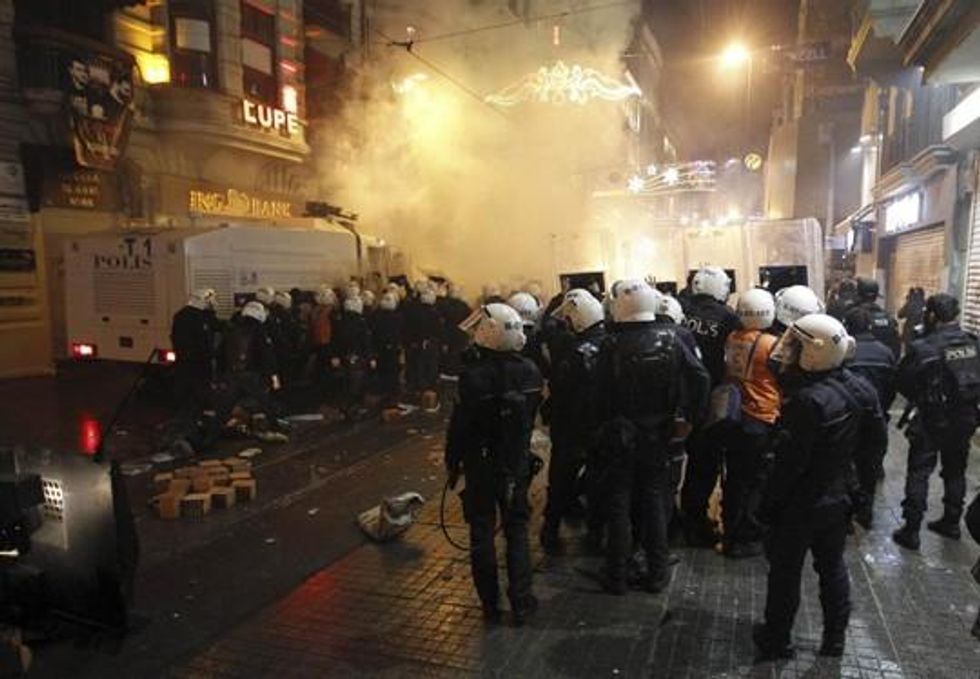Government says the internet "reform" is aimed at "protecting individual privacy"
Turkish police fired volleys of tear gas and used water cannons to disperse large crowds of protesters Saturday rallying in central Istanbul against new "draconian" internet laws passed to stifle dissent and stop evidence of high-level corruption being seen online..
The new bill was passed late Wednesday by the Turkish parliament which is dominated by Prime Minister Recep Tayyip Erdogan's AKP party.
"Everywhere is bribery, everywhere is corruption," the crowd chanted, a variation of an anti-government slogan used by demonstrators in protests across the country last summer.
The legislation would give authorities the power to block web pages without a court order within just hours. It would also require internet service providers (ISPs) to store data on their clients' online activities for two years and provide it to the authorities on request.
The government says the internet "reform" is aimed at "protecting individual privacy."
Our work is licensed under Creative Commons (CC BY-NC-ND 3.0). Feel free to republish and share widely.
Turkish police fired volleys of tear gas and used water cannons to disperse large crowds of protesters Saturday rallying in central Istanbul against new "draconian" internet laws passed to stifle dissent and stop evidence of high-level corruption being seen online..
The new bill was passed late Wednesday by the Turkish parliament which is dominated by Prime Minister Recep Tayyip Erdogan's AKP party.
"Everywhere is bribery, everywhere is corruption," the crowd chanted, a variation of an anti-government slogan used by demonstrators in protests across the country last summer.
The legislation would give authorities the power to block web pages without a court order within just hours. It would also require internet service providers (ISPs) to store data on their clients' online activities for two years and provide it to the authorities on request.
The government says the internet "reform" is aimed at "protecting individual privacy."




